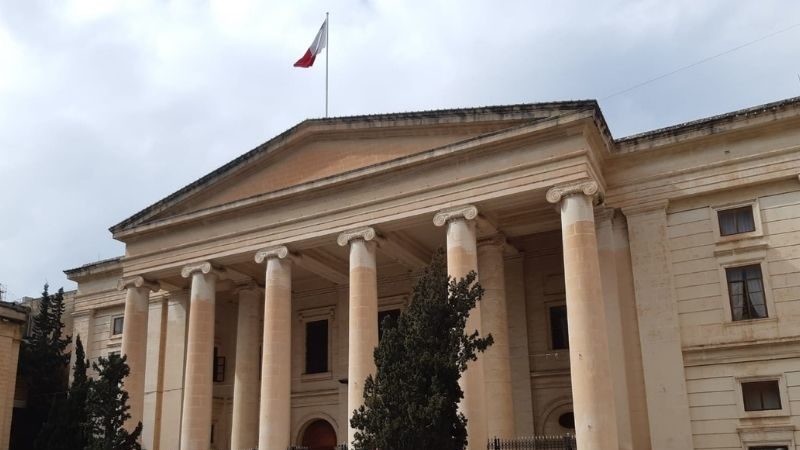A court sitting on Wednesday ended abruptly as the lawyer for the Degiorgio brothers in the case involving the assassination of journalist Daphne Caruana Galizia – William Cuschieri – insisted on defying a court order and refused to cross-examine Melvin Theuma until all the middleman’s recordings are played in court.
Despite a decree stating that the middleman’s cross-examination should draw to a conclusion, Cuschieri stuck to his guns even though Judge Edwina Grima had said the relevant snippets of the recordings, as opposed to all of them, could be heard during questioning. The recordings are hours that the court would need to sit through again, leading to further accusations of the defence seeking unnecessary delays in court proceedings.
Theuma’s recordings, which he had taken through a recording function on a mobile phone, placed in his car or in his shoe, were already played in court in a separate compilation of evidence against suspected mastermind Yorgen Fenech, and took months to get through.
The Degiorgio brothers – Alfred and George – are two of the suspected hitmen involved in the assassination of Caruana Galizia. The third, Vince Muscat, pleaded guilty to his involvement in February, and has since been testifying against the Degiorgios based on a pardon he received for another murder.
The lawyer for the Degiorgio brothers insisted he would not be cross-examining Theuma unless his condition was met. While arguing he was reserving the right to cross-examine the witness, the court ruled it would now be decided by a superior court in view of Cuschieri’s defiance of a court order.
Deputy Attorney General Philip Galea Farrugia said Cuschieri went against orders by the criminal court, which had ordered the middleman’s cross-examination to draw to a conclusion. “The prosecution feels this is an attempt to draw out proceedings,” he added.
Theuma had last testified in these court proceedings in February when he was cross-examined by Vince Muscat’s lawyer, Marc Sant. At the time, Muscat was still among the accused.














Tolerance is important, but assume equilibrium at the peril of the state.